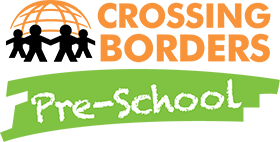There are a plethora of advantages to your child being multilingual. Being multilingual sets your child up for success in multiple ways. Multilingual children succeed more academically, and have stronger writing, reading, and critical thinking skills than their peers. Beyond school, speaking multiple languages is a very attractive quality in the professional world as well. Finally, multilingual children have an easier time connecting with their peers, leading to a more enriching social life.
It makes sense to enroll your child in a language immersion preschool because it gives them a clear head start. However, there are also unique challenges to raising a multilingual child that you will want to prepare for that you may not have expected. In this blog, we will go over some of the common challenges of raising multilingual children, and how you can prepare yourself.
THEY MAY MIX UP THE LANGUAGES
Some people argue that children should not learn multiple languages because it will confuse them. It’s true that younger children sometimes mix up certain words and phrases, speaking a sort of combination between the languages. However, as they get older and their brain develops further, your child should have no problem differentiating between them. This tends to happen when their vocabularies are smaller; however, once they have established a strong foundation in the language, they understand enough to switch seamlessly between the languages. Keep in mind that even a monolingual preschooler will sometimes struggle to remember an English word (and even adults do this too!). If you do not speak the second language your child is learning, you may find it advantageous to keep up with the lessons and familiarize yourself with some vocabulary words so if your child does switch back and forth between the two, you can still understand them.
YOU WILL HAVE TO PUT IN WORK, TOO
When you enroll your child in a language immersion preschool, you are likely thinking about all the things they will have to do, not you. Teaching your child a second language is a long-term commitment, and requires you to support the effort in multiple ways. The most important part of learning a new language is exposure, so you will need to implement ways to expose your child to the language regularly. You might invest in some storybooks in the chosen language so you and your child can read them together at bedtime, as well as some CDs and maybe even some movies. As your child gets older and leaves our language immersion preschool, you will need to help continue their language education, whether by enrolling in a language immersion elementary school or getting private tutoring. When you want to raise a multilingual child, it takes time, money, and effort on your part.
YOU WILL NEED TO BE CONSISTENT
If your strategy for implementing bilingual lessons in your home isn’t immediately successful, you might feel tempted to switch it up and try something new. However, as parent, you know that children need consistency. If you keep switching your approach, your child isn’t going to retain the language as quickly. Instead, consult with your child’s teacher about the best methods for supporting their language efforts at home, and be consistent with it. This will create an environment that is optimal for their success.
At Crossing Borders Preschool, we want your child to succeed in learning a new language, and will do everything in our power to make it as easy as possible. Contact our language immersion preschool to schedule a tour and learn more about enrollment today.




